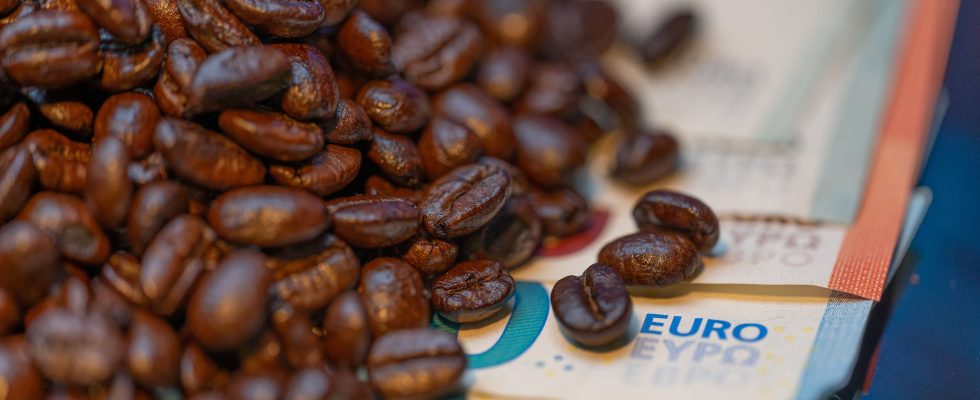In this episode of La Loupe, report on a farm in Minas Gerais, in the south of Brazil, with Renaud Toffier, journalist at L’Express.
The team: Charlotte Baris (presentation and writing), Théo Sire (editing), and Jules Krot (directing).
Music and dressing: Emmanuel Herschon / Studio Torrent
Image credits: Jonathan Raa / NurPhoto via AFP
Logo: Anne-Laure Chapelain / Benjamin Chazal
How to listen to a podcast? follow the leader.
Charlotte Baris: Every morning, your ritual is the same: pour yourself a big cup of coffee. Then comes lying down around 10 a.m. with colleagues, an espresso after lunch, and a latte in the afternoon to warm up. Some prefer it ground, others in grains, from Vietnam or Colombia, in capsules or with an Italian machine…
For you, as for more than 9 out of 10 French people, not a day goes by without drinking coffee. And yet, you can’t imagine the journey these little black grains took before reaching your cup…
So let me take the liberty of a quick history lesson: originally from Ethiopia, coffee arrived in Europe four hundred years ago, imported by Italian merchants who discovered it in the Orient. According to legend, it was Sultan Solimane who made Louis XIV taste it for the first time. Austria, Germany, Holland, England: all European courts succumb, until coffee arrives in America. To meet demand, production is expanding to Asia (particularly India) and South America (Brazil and Colombia).
Result: 2.5 billion cups are drunk every day around the world today. A long-standing habit but above all a business turned upside down by global warming and which could disappear. In this episode of La Loupe, we take you to Brazil, to discover farms trying to adapt, while millions of people depend on the production of this other black gold…
Aluminum coffee capsules: what ecological alternatives?
In Brazil, an exceptional organic coffee extracted from pheasant droppings
In Yemen, gourmet cafes are multiplying in the battered capital
Ramadan: for Libyans, the hardest part will be going without coffee
